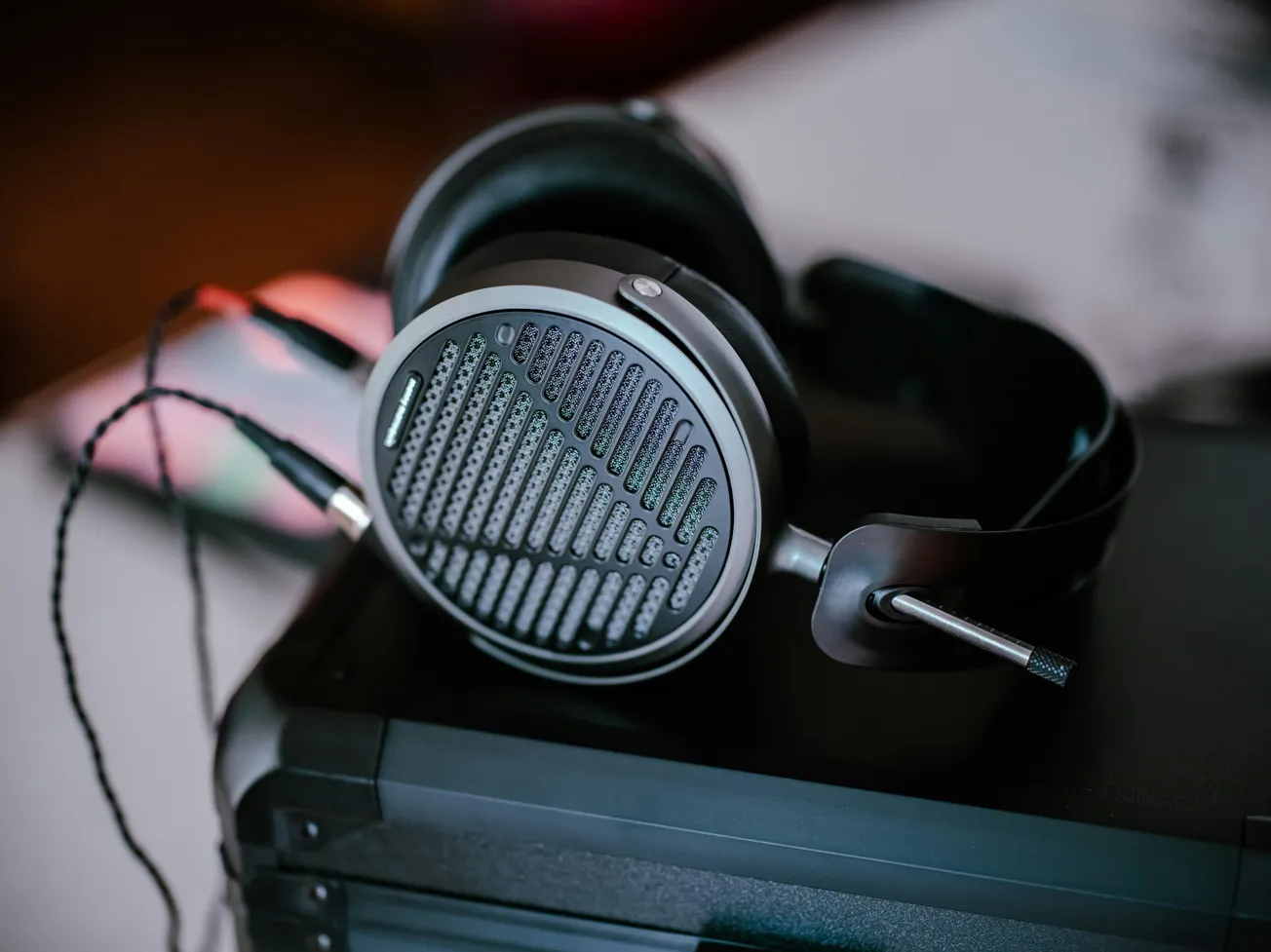The Shure SM4 enters the crowded $200-$270 condenser mic market with strong build quality, useful accessories and a sound profile that stands out – for better and worse.
Build and Accessories
Out of the box, the SM4 includes a sturdy storage case, shock mount, stand adapter, spare bands and a magnetic pop filter. The mic itself feels premium, with an all-metal body and grill. Its simplicity is notable: no switches, just a plug-and-record cardioid condenser.
Sound Profile
The SM4 delivers a bright, detailed tone. Lows are controlled, mids remain neutral and highs feature a pronounced boost in treble and air frequencies.
This can make vocals, acoustic guitars and spoken word sound lively and open. However, sibilance is sharp at times, often requiring a de-esser.
Performance Tests
Plosive control from the magnetic pop filter is decent, though its front-only mounting limits flexibility. The mic’s self-noise measures 17 dBA, higher than rivals like the Lewitt LCT 440 (7 dBA) or Rode NT1 (4 dBA).
In treated rooms, this may be manageable, but it’s a clear disadvantage in quieter setups. Shock rejection is adequate, with minimal resonance when tapped.
Comparisons
Against peers like the Audio Technica AT2020, Rode NT1 5th Gen and Lewitt LCT 440, the SM4 holds its own sonically but loses ground on noise performance. Compared with higher-end models like the Shure SM27 or Sennheiser MK4, it offers a surprisingly open sound for its price bracket.
Verdict
The SM4 is a well-built, bright-sounding mic that works well for vocals, guitars and spoken word. Still, its higher self-noise makes it less appealing for users prioritizing silent recording.
If you like its airy sound signature and can tolerate a little hiss, it’s a solid contender.










